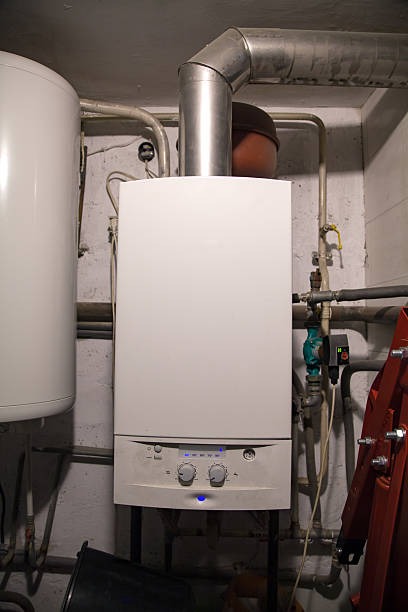

Tankless Water Heater Services in Wrightsville, PA
Switching to or maintaining a tankless water heater can deliver reliable on-demand hot water, lower utility bills, and a smaller physical footprint — benefits that matter for Wrightsville, PA homes facing humid summers, cold winters, and the area’s common water hardness.
Why tankless makes sense for Wrightsville homes
- On-demand hot water eliminates long recovery waits, helpful for families with staggered morning routines.
- Compact indoor or outdoor units save basement or utility closet space in older Wrightsville houses.
- In a climate with cold winters, efficient on-demand systems reduce standby heat loss present in storage tanks.
- Local water conditions: moderate to hard water in Lancaster County increases the importance of regular descaling to preserve performance and lifespan.
Common tankless water heater services offered
- Installation of new tankless systems (electric, natural gas, or propane)
- Retrofit and replacement of existing storage tanks with tankless units
- Sizing and fuel-type evaluation for optimal performance
- Routine maintenance: descaling, filter and inlet screen cleaning, combustion inspection for gas units
- Diagnostics and repair: ignition, flow sensor, heat exchanger, or gas valve issues
- Service plans and scheduled preventive maintenance tailored to local water quality and household usage
Sizing and fuel-type considerations for Wrightsville, PA
Getting the right size and fuel type is critical to avoid lukewarm spikes or insufficient flow:
- Flow rate (GPM): Typical Wrightsville homes need 5 to 8 GPM for a shower plus a dishwasher or washing machine running concurrently. Larger homes or multiple simultaneous showers may require 8–12 GPM or whole-home multi-unit configurations.
- Temperature rise: With cold winter groundwater in Pennsylvania, calculate the required temperature rise (incoming water temperature up to the low 40s F) to reach desired hot setpoints. Higher rises require higher capacity units or multiple units staged.
- Fuel options:
- Natural gas or propane: Often preferred for higher GPM and lower operating cost if gas service is present. Venting and combustion air requirements must be met.
- Electric: Easier to install where gas is unavailable and suitable for lower flow demand or point-of-use applications. May require panel upgrades for whole-home models.
- Sizing assessment should factor household peak demand, seasonal groundwater temps, and any future changes (baths added, increases in occupants).
Installation and retrofit requirements
- Venting and location: Gas units need proper venting and combustion air; exterior-rated models are an option for tight spaces. Electric units avoid combustion venting but may need upgraded electrical service.
- Gas supply: Many older Wrightsville homes may require gas line upsizing to support a high-capacity tankless unit.
- Condensate handling: High-efficiency condensing units produce acidic condensate that must be drained or neutralized per code.
- Permits and inspections: Local building codes and inspections are required for gas, electrical, and plumbing changes. A professional assessment avoids common pitfalls in retrofit projects.
- Space and clearance: Confirm mounting location, service clearances, and accessibility for maintenance.
Routine descaling and maintenance for local conditions
Hard water in the Lancaster region accelerates scale buildup in heat exchangers and flow sensors. Recommended maintenance:
- Descaling frequency: Every 6–12 months for homes with hard water; every 12–24 months for soft-water homes. Point-of-use or whole-house water softeners can extend intervals.
- What maintenance includes:
- Full descaling (chemical flush) to remove mineral buildup
- Inlet filter and screen cleaning
- Checking flame sensor and burner condition on gas units
- Verifying temperature and flow sensor calibration
- Inspecting venting and condensate lines
- Benefits of regular service: Restores efficiency, prevents cold-water sandwiching, extends heat exchanger life, and reduces repair risk during peak seasonal needs.
Common repair issues and homeowner troubleshooting
Typical issues seen in tankless systems and sensible first checks:
- Intermittent hot water or cold spikes
- Check inlet filters and aerators for blockage
- Verify multiple fixtures aren’t exceeding rated GPM
- If issue follows high mineral content, suspect scale in heat exchanger
- No hot water (electric)
- Confirm breaker and unit power status
- Check error codes displayed on unit
- No ignition or pilot issues (gas)
- Ensure gas supply is on and other gas appliances work
- Verify venting and combustion air are unobstructed
- Strange noises or reduced flow
- Likely scale or debris in flow sensor; cleaning often required
Safety note: Avoid performing gas, electrical, or internal gas valve repairs yourself. If basic checks above do not resolve the problem, a trained technician should complete diagnostics and repairs.
Energy savings and lifespan: tankless vs traditional tanks
- Energy savings: On-demand tankless systems typically reduce water-heating energy use by about 20% to 35% compared with conventional storage tanks for homes with moderate to low continuous use patterns. Actual savings depend on household hot water habits, fuel costs in Wrightsville, and system sizing.
- Lifespan: Properly maintained tankless units commonly last 15–25 years, often longer for heat exchanger components with regular descaling. Traditional storage tanks average 8–12 years before replacement is needed.
- Long-term value: While upfront costs are higher, lower operating costs, reduced maintenance of standby losses, and longer service life can make tankless systems cost-effective over time, especially in homes with seasonal and variable hot water demand.
Service plans and ongoing protection
For Wrightsville homeowners, structured service plans provide predictable maintenance, prioritized scheduling during peak seasons, and reduced risk of unexpected failures:
- Typical plan elements:
- Scheduled descaling and inspection intervals aligned with local water hardness
- Annual combustion and venting checks for gas units
- Priority dispatch and diagnostic labor discounts
- Documentation of service history to protect warranties and resale value
- Choosing the right plan: Match frequency to household size, water hardness, and whether a water softener is installed.


Enjoy flexible financing options that make upgrading or repairing your HVAC system easy and budget-friendly.









